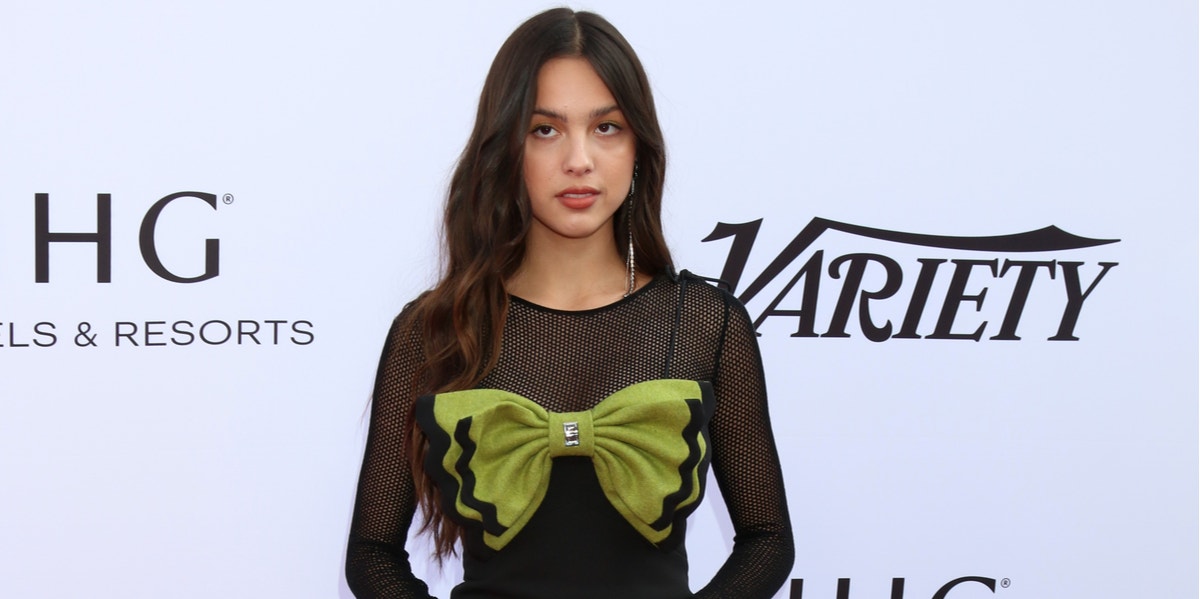Olivia Rodrigo, U OK? Because Your Music Has Me Worried
SOUR is catchy. But it’s also one huge red flag.
 Kathy Hutchins / Shutterstock
Kathy Hutchins / Shutterstock I’ll confess, before I heard Olivia Rodrigo was invited to the White House to encourage young people to get the COVID-19 vaccination, I had never heard of her. My daughter, who is in third grade and thus far better-versed in popular culture than her apparent fossil of a mother, quickly rectified that situation.
She grabbed my phone, did some swipes and some taps, and said "Good for you" into the microphone. Instantly, a guitar riff filled the car. As we bounced around to good 4 u, I was reminded of the girl-power rock I used to listen to way back in the Stone Age — I mean, the 90s. The song is catchy and cynical, everything I needed when I was a girl, throwing myself into relationships for which I was wholly unprepared.
Before long, I had the entire album, SOUR, on repeat. We had learned the tunes and belted out the choruses half a dozen times before we had the chance to process their meaning.
"I think all these songs are about the same relationship," my daughter said.
"Man, I hope not," I said. Because as much as I can identify with the words Rodrigo sings, I wouldn’t wish some of the situations in her songs on anyone. And she was 17 when the album was released, a mere embryo to my old eyes.
After spending years coming to terms with my own traumatic past, I’m sensitive to these messages — especially when they’re put out by such young people and so easy for other unwitting children to consume.
Rodrigo sings of heartbreak, sure. What would music be without breakup anthems and sappy memories?
But she also repeats themes of trying to keep someone around who doesn’t love and appreciate her, sticking with someone even when she suspects them of being unfaithful, and doing things she didn’t want to do to please someone she thought she wanted to be with.
I identify so hard with these ideas that I get flashbacks just writing about them. I did all these things, too, starting at a very young age, because I desperately needed to be loved and taken care of. But these are not the building blocks of healthy relationships; they are warning signs of dysfunction and emotional abuse.
1 step forward, 3 steps back struck a particular chord with me.
After spending my tween and early teen years seeking love and doing whatever it took to make boys want me, at 17 I landed squarely in a pit of emotional torture. And I didn’t fall in; I dove head-first and swam around for almost two years. Half of college passed before I came up for air.
Sam didn’t want me. He was much more focused on living in a perpetual state of inebriation than on having a girlfriend. But I chased him anyway.
He came around when he wanted company and disappeared when he didn’t. And, once we had settled into some shadow of a relationship, I found myself walking on eggshells because I never knew when the light in his eyes would darken.
"All I did was speak normally / Somehow I still struck a nerve," Rodrigo sings, and it brings me back to all the perfectly normal conversations that went south because…well, more than two decades later, I still don’t know why the switch flipped. —
And the things he said. The names he called me, the things he brought up from my past, the things he confessed to doing behind my back. He knew exactly how to wedge himself into my insecurities, and it broke me.
Later, she sings, "And maybe in some masochistic way / I kind of find it all exciting / Like, which lover will I get today? / Will you walk me to the door or send me home crying?"
The idea that a victim enjoys the abuse is pervasive and harmful.
It minimizes the victim while empowering the abuser. No one seeks out abuse because it’s fun. We seek it out because it’s all we know. Or, as Rodrigo says later in the song, “…the roller coaster is all I’ve ever had.”
We don’t have models of healthy relationships, and if we do, they’re not strong enough to counteract the deep need for connection that has, for one reason or another, been unmet in our lives. And seeing dysfunction normalized in pop culture only reinforces these troubling ideas.
The thing about music is that it sneaks in through the back door. We consume it passively in the background until it’s incorporated into the cultural canon, and most of us don’t spend much time questioning it.
As much as we want to assume it goes over kids’ heads, somewhere it’s in there, getting folded into their schema for what a relationship is.
SOUR is catchy. But it’s also one huge red flag.
If even half the stories from these songs are true, I’m really concerned for Olivia Rodrigo’s mental state. And, even if they’re not, some record executive thought it was appropriate for a seventeen-year-old role model to put out music (co-written with a man 20 years her senior, by the way) that normalizes abusive relationships.
Olivia, I hope ur ok. And I also hope your next album is full of songs that empower the millions of young people who are listening and don’t mention that abusive jerk once.
Nikki Kay writes about fiction, poetry, personal essays about parenthood, mental health, and the intersection of the two.

